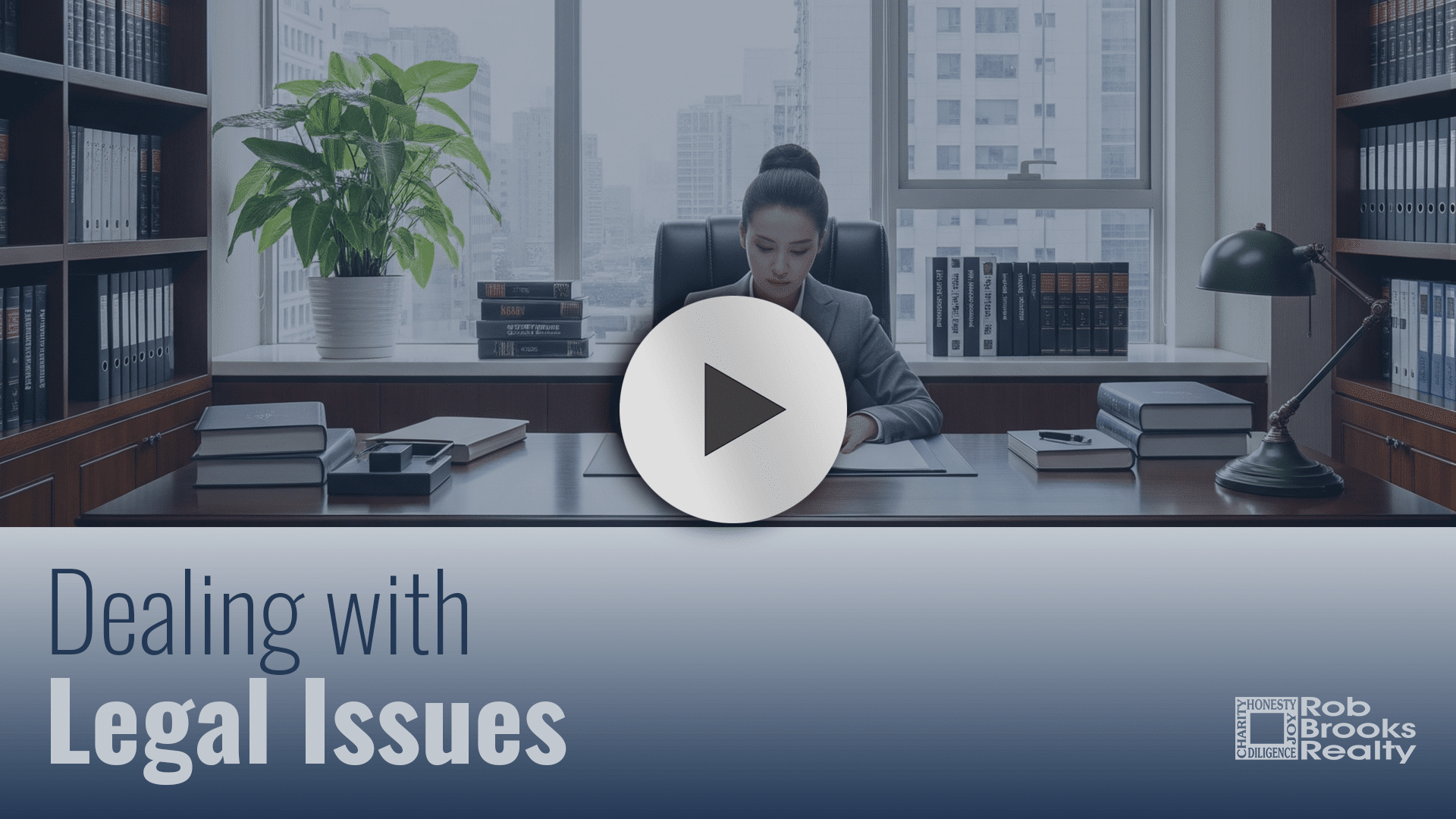Handling Legal Issues
Angela and Michael discuss how to navigate the complex legal landscape of property management and protect owners. They explain their proactive approach, highlighting how thorough tenant vetting and upfront documentation significantly reduce legal risks and prevent issues like evictions. We cover key aspects of Florida's landlord-tenant laws.
Topics discussed
- Minimizing legal danger zones
- Preventative legal strategies
- Property management as a legal field
- The role of addendums
- HOA addendums
- Pool addendums
- General housing laws
- Continuous liability minimization
Transcript
Angela, it seems like you are the legal expert—no, she's not an attorney, folks, don't ever claim to be an attorney or give attorney advice. However, when it comes to finding out what is appropriate and how we treat our tenants, you're doing all the research on that. So tell us, tell the owners, what are some of the legal danger zones that they need to navigate, or just things they need to be aware of?
First of all, here in the Panhandle, doing property management, we are very blessed. In the past three years that I've been with you at Rob Brooks Realty, we have had very few, almost none, just a couple of smaller incidents. We've been very blessed. And I'm glad you brought this up; this is all unrehearsed, so we just do this authentically. We have never had an actual eviction, and I attribute this to God helping us out number one, and two, just a terrific vetting process that we already talked about that Danielle does, and then three, I think a lot of your work in talking and making sure that the parties know what their responsibilities and expectations are.
I have 30-plus years of doing property management, and I know you've got quite a few with you. I think it's a lot to say about the experience and coming into it with that knowledge pool of what has happened in the past, taking those experiences and building on them first of all. That's a lot of it, and then just setting everything up right from the beginning, the right way, that avoids the majority of any legal issue. So doing it right upfront cuts out a lot of the problems. The way that we handle our security deposits by doing our inspections, our lease agreements, everything is done so well upfront that it's taking away a lot of the worry from the owners. So that's what I feel is most important.
Unfortunately, everything that we do in handling property is really a legal issue. Property management as a whole is dealing with legalities. In property management, we have Florida Statute 475, which is lengthy, as well as Florida Statute 83, which governs how property management is taken care of, and then we have all the legal precedent that's been established. So, it's a lot of knowledge to keep track of. One thing that I think you've done really well is the addendums and making sure that the addendums help keep owners out of some sort of potential trouble with tenants. Can you give a couple of examples or describe how that works?
The first addendum that comes to mind is our HOA addendums. That works with the legal laws of the HOAs and what the tenants can and can't do when they're living in the properties. We've implemented an HOA addendum that speaks to that language, making sure that we have all the legal checkboxes covered on what needs to be said to prove that the tenants are aware of all of these bylaws and laws and where they're found, and how to follow them.
Next would be pools; that's a big area here in Florida, a lot of homes have pools. So we have homes that we rent with pools, so we have a pool addendum. Each one of these can change by the owner, by the property, because again, not all homes are alike, not all properties are alike, not all owners are alike. So, there's a lot of different changes in the systems with what the pool has; some have different filter systems, so we write the addendums based on what the actual property has, what the owners have used for our services. It's customized by the property, by the owner. Pool risks can be not just falling in or whatever kind of things, but then there's also if a pool is not maintained well, there can be a lot of money involved in getting that taken care of, and if the pool is fenced in or not. So, we step back and analyze all those issues upfront to minimize all the liabilities, make sure that we're looking at everything from that standpoint to start off with, and working with our attorneys on extra addendums if needed or extra statements if needed, just making sure that we're protecting everybody's best interest in that.
Other areas would be the housing laws you started to mention. There's a lot of red tape there, you know, scary things. But again, we've been so fortunate, and it's a blessing being here and doing business here in this area. The large military population has a lot to do with it, and just the clientele that I think we cater to in general is a much better clientele tier that we really kind of eliminate those issues in that tier for a lot of the part. That's right; there are some things about that you can do that help eliminate risks by everything done upfront.
Anything else that you wanted to mention as far as the legalities? I know that's a huge thing, and you could talk—my Halloween shirt is on today for that, such a scary topic. No, it is, it's a big scary thing, and just knowing that we have the team, the people, and we do it with that in mind, so we're trying to always minimize liabilities, minimize, minimize liabilities, and just do it right. Thank you.
Start a conversation with our team
Let us help you think through the best strategy for your property. Get in contact with our property management team today.




